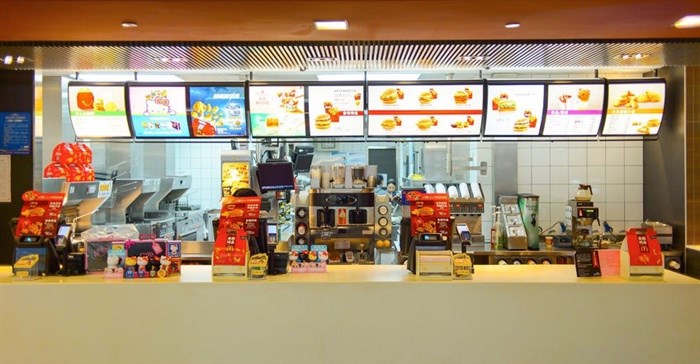
Top stories


ESG & Sustainability#BudgetSpeech2026: SRD grant unchanged, other Sassa social grants see hike
7 hours




More news











ESG & Sustainability
South Africa’s carbon tax should stay: climate scientists explain why











1. Consumers are looking for value and variety
There is intense competition in the fast food and retail sectors with the entry of international brands such as Starbucks, Dunkin Donuts and Cotton On. Consumers are not necessarily looking for the best price, as is evident in clothing retail where Cotton On seems to be outperforming the likes of Mr Price.
This category, while still focused on convenience, offers a restaurant experience for less. Fast casual restaurants lie between fast food counter service restaurants and casual dining sit-down restaurants. They have all the elements of a fast food outlet e.g. service, price and various eating options but what makes them different is the transparency in ingredients and the dining experience.
Good examples include RocoMamas, Ocean Basket and the new format of Nando’s stores. While not able to afford fine dining, consumers may opt for fast casual restaurants as a way to treat themselves in this economy.
The “build your own” concept keeps growing in fast food, where consumers are starting to demand the ability to customise their orders. Even McDonald’s has joined this movement with their touch screen menus and ability to choose buns, burger sizes and toppings. In addition to that, health concerns and diet trends such as banting has led to new product development such as gluten-free pizza bases.
In-N-Out Burger is a very popular concept in the US that offers a “not-so-secret” menu that is not visible on the in-store menu but it is acknowledged online and consumers can order these items in-store. In-N-Out Burger is also known for their one day “pop-up” stores – Cape Town was lucky enough to experience what this brand had to offer earlier this year.
The “now generation” is used to getting products and services as and when they want them, for example Netflix and Uber. Uber will be offering scheduled rides to consumers, giving consumers the comfort knowing Uber will be there when they need them. Convenience and immediacy are critical aspects of a service offering and businesses falling behind this curve may lose customers to their faster competitors.
With many applications and social media to choose from and an intense focus on consumer rights, word of mouth spreads quickly through applications such as Twitter and Zomato. Franchises need to monitor their online presence intensely and should respond to complaints quickly. Every franchise needs a social media policy.
Digital marketing is overtaking conventional channels as on-demand TV and the decline in print media minimises exposure to traditional advertising. Franchises should consider apportioning more of their marketing budgets towards digital advertising. Also, consumers are inundated with information and there is a large shift towards video content over text, up to four times as many consumers prefer video content.
The best way to react to consumer demand is to actively monitor sales and to respond quickly to market trends. The traditional operational manual is moving towards an online information and communication platform, that puts the franchisor in touch with franchisees instantly and ensures constant feedback from the network.
Online retail only accounts for 1% of total retail sales in SA and amounts to approximately R6 billion, indicating a growth of 35% compared to previous years. World Wide Worx’s Arthur Goldstuck studies indicate that leading countries for online sales include:
• Asia Pacific at 33.4%
• North America at 31,7%
• Western Europe at 24.6%
Similarly, online ordering will continue to grow along with innovative delivery methods. Uber Eats was launched in South Africa this year and Domino’s Pizza has started with drone delivery in some parts of the world.
This provides an efficient and crucial position for franchises in tough economic and competitive environments. Multi-brand franchising in South Africa gives franchisees the opportunity to seek efficiencies in their operations within a group. E.g. Famous brands gives franchisees the opportunity to own multiple brands within their network/group, for instance a Steers and Fishaways.
These concepts will share the operational costs of the backroom whilst still maintaining brand integrity and separation by having separate store entrances with clear branding. However, you generally cannot own two competing brands e.g. Fishaways and Fish and Chip co due to expertise and intellectual property that can’t be shared across competing brands.
No business opportunities are risk-free, but some categories are popular in any economic environment and more likely to succeed, some of these include:
• Education
• Child and pet care services
• Auto maintenance and repair
• DIY – home repair and renovation
• Computer related services
• Property and real estate
• Fitness, health and professional care – the “lipstick factor” has prevailed yet again indicating that when economic conditions are getting tougher the consumers are not purchasing big-ticket luxury items but aren’t willing to give up on life’s little indulgences/luxuries.
Big corporate companies are leaning towards a more lucrative joint venture model when franchising to maintain high standards and control within their structure. This requires access to capital.
A study indicated that 72% of millennials prioritise experiences. They are prioritising material items such as cars and homes less and focusing more on personal experiences. Uber and Airbnb are greatly benefiting from this trend. Franchises and companies must adapt to stay relevant in the market.